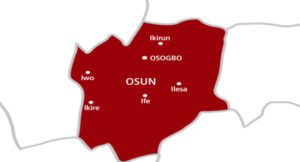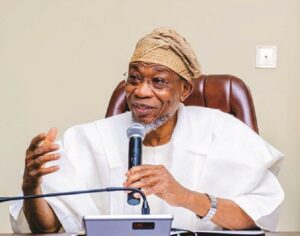
Nigeria at 63: The rationality of Tinubu’s fuel subsidy removal after 53 years
By Jimoh Olorede, Ph.D
Before its official removal in May 2023 by President Bola Ahmed Tinubu, fuel subsidy regime had been in Nigeria for more than 53 years, having begun in the 1970s. However, following the promulgation of the Price Control Act in 1977, it (fuel subsidy) became institutionalized. By implication, the promulgation made it illegal for petrol and some other products to be sold above the regulated price. This was some sort of ‘dividend’ that Nigerians had been supposedly enjoying in the last five decades, and this explains why they continue to find it difficult since its removal by the President.
While the concept of subsidy itself is obviously plausible and noble, its administration in Nigeria has been marred by mismanagement and corruption. Consequently, the World Bank advised against retaining fuel subsidy in Nigeria, saying it’s a source of wastage and leakage. Most Nigerian economists also agreed that the subsidy regime was unsustainable; so, it had to go.
With facts, this piece also justifies the unsustainability of fuel subsidy regime. Nigeria’s core problem is that it relies almost entirely on expensive imports to meet its gasoline needs, despite being Africa’s largest oil and gas producer, as none of the country’s refineries is working at capacity due to mismanagement. According to a parliamentary report in June this year, for instance, Nigeria spent more than $10 billion in a decade on three oil refineries that produced hardly any fuel.
Records have it that the Federal Government of Nigeria in the last eight years had spent as much as 11.4 trillion on fuel subsidy payments only. In just a year, 2021, Nigeria imported $11.3 billion in Refined Petroleum, mainly from Netherlands ($3.63B), Belgium ($1.78B), Norway ($1.2B), India ($992M), and United Kingdom ($760M). It’s absurd to note that the country borrows to pay this money refining its naturally endowed crude oil, and to maintain other statutory expenditure obligations of government. According to the Debt Management Office (DMO), Nigeria is indebted to five countries namely China, France, Japan, India, and Germany. The agency said Nigerian government owes these countries a total of $5.16 billion as at March, 2023.
By subsidising, the federal government attempts to lower the fuel cost by providing direct financial support to oil firms, thereby lowering the fuel price for Nigerians. It’s however regrettable that the people for whom subsidy was meant were not actually the direct beneficiaries of the scheme. Corroborating the above in relation to the wrong channeling of the scheme, the President of the African Development Bank, Dr. Akinwumi Adesina was recently quoted to have said the Federal Government of Nigeria unnecessarily borrows to subsidize for the benefit of the rich, as estimates according to him show that “the poorest 40 percent of the population consume just three percent of petrol.”
Also, facts obtained from the Nigeria Extractive Industries Transparency Initiative (NEITI) in its recent independent audit report, show that over N13.697 trillion ($74.386 million) was paid as subsidy to oil marketers from 2005 to 2012. The gross variations in the annual subsidy payments by the federal government undoubtedly reflect high-level corruption and misappropriation of funds. The breakdown of the above figure by NEITI, for instance, further shows that N2.197 billion was paid as subsidy in 2006, and from this, it rose to N236.64 billion in 2007, and N360.1 billion in 2008. In 2010, it further rose to N416.45 billion, and skyrocketed to N1.9 trillion in 2011.
Absurdly, the federal government was said to have paid as much as $10 billion (more than N4.39 trillion), which was over 24 percent of Nigeria’s total expenditure, as oil subsidies for last year, 2022, while the country’s spending on capital projects for the 2022 financial year was only N4.95 trillion. Can you imagine!
With the declaration of the Nigeria National Petroleum Corporation (NNPC) that it was owed N2.8 trillion in outstanding subsidies payment by government and that it’s spending above N400 billion monthly on subsidising petrol prices, one can cogently deduce that the amount paid on subsidies from 2005 to 2021 was equivalent to the entire budget for defence, education, agriculture and health in the last five years! This is in agreement with a U.S-based Energy, Infrastructure Project Finance, Commercial and Transactional Attorney, Felix Ayanruoh, when he recently submitted that the subsidy paid within the years also equaled the capital expenditure for 10 years between 2011 and 2020.
Similarly, the government, during the last administration, estimated it needed $1.5 trillion to fix Nigeria’s road infrastructure deficit over the next ten years. The newly appointed Minister of Works, David Umahi, has also raised concerns over the bad shape of Nigerian roads. So, it’s counterintuitive that we are subsidising fuel when we don’t have good roads, as the Infrastructure Concession Regulatory Commission (ICRC) recently maintained that 135,000 kilometer of road networks in Nigeria are untarred, out of the total of 160,000km of state and rural roads in the country according to the World Bank records.
It’s clearly indisputable from the above revealing facts that subsidy regime in Nigeria is unsustainable. It’s also unarguable that subsidy payment, with its characteristic corruption, is mainly the bane against the nation’s economic boon, especially as to why we are not developing as we should. So, it has to go as declared “gone” by the President at his inauguration on May 29, 2023.
From the above analysis, President Tinubu’s subsidy removal is rational, and his courage and guts commendable for thwarting the anomalies and doing what previous administrations could not do in the last 30 years. However, the President has to be proactive in mitigating the ripple effect of subsidy removal on poor Nigerians. Of a truth, things are hard and very difficult since subsidy removal. The palliative introduced and channeled through the state governors to ameliorate the sufferings occasioned by subsidy removal, just like subsidy regime as it lasted, couldn’t get to the intended beneficiaries.
Olorede, Ph.D, a media scholar, writes from Iragbiji, Osun State via [email protected]/08111841887.



